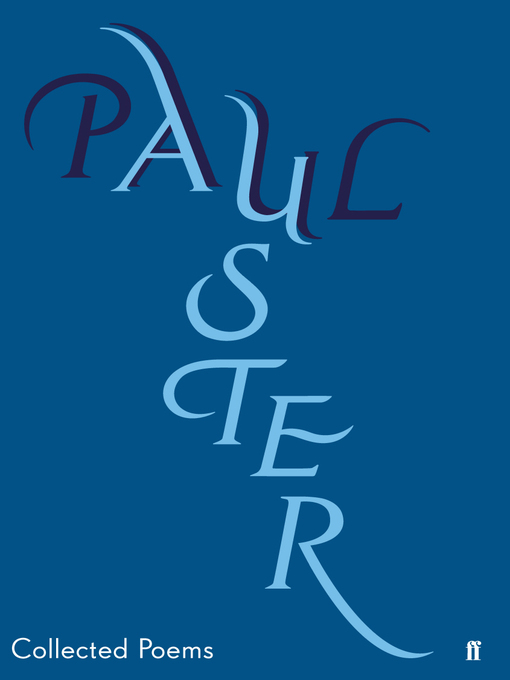
Collected Poems
- اطلاعات
- نقد و بررسی
- دیدگاه کاربران
نقد و بررسی

February 2, 2004
Before embarking as a novelist, young Paul Auster (City of Glass)
published poetry in a variety of small journals and magazines. This handy volume collects all his verse from the late 1960s through 1980. It's poetry very much of its period, oriented toward French mid-century thought and modes. A pale, defeated imagism presides, as visions of whiteness and woundedness unspool from line to line. Things vanish out of the world (a key section is called "Disappearances") and hands clench onto the empty space where they've been. Many of the poems treat the paradoxes of perception and epistemology: "He is alive, and therefore he is nothing/ but what drowns in the fathomless hole/ of his eye,// and what he sees/ is all that he is not." The scholar Norman Finkelstein provides an illuminating introduction, tracing connections between allusions in the poetry and actual events in the young Auster's life, such as the collapse of his parents' marriage and his attendance at riot-torn late '60s Columbia University. To add heft to the slim book, a number of Auster's translations from the French are included, mostly of the surrealist communist poets of a previous era (Breton, Tzara, Eluard) who attained a new popularity when the events of May '68 made them, literally, poster boys for the New Left in Paris. As a translator, Auster is always effective when he employs a small vocabulary, and his work on Tzara is genuinely impressive: "I know I carry the song in me and I am not afraid/ I carry death and if I die it is death." Otherwise Collected Poems
remains a curiosity, a tantalizing look at the work of a poet whose breakthrough led him away from line breaks and into the actions of prose.

January 1, 1989
Readers moved by Levi's penetrating autobiographical accounts of the Holocaust will equally esteem these harrowing poems assembled before his suicide in 1987. Embedded here is profoundly felt outrage, made all the more piercing by Levi's locating his experience of this uniquely appalling historical moment within a hallowed, unbroken literary tradition through the use of frequent quotations or allusions (such as to Dante). Poems written in late 1945 and early '46 record the painful yearning of the prisoner of Auschwitz simply to walk ``sweet beneath the sun''; the burden of the liberatedinescapable grief and horror ``That taint your bread and wine / Lodge every evening in your heart''; and a longing for a justice impossible to reckon. Among the most wrenching is a 1984 poem expressing the guilt of the survivor, who says to the ghosts of the murdered, ``Go away. I haven't dispossessed anyone, / Haven't usurped anyone's bread. / No one died in my place. No one.''; and a 1983 poem that links the poet's mortality to the discharging of his mission to ``tell the story'': ``What to do now? How to detach yourself? / With every work that's born you die a little.''




دیدگاه کاربران